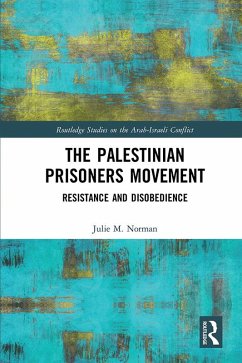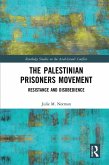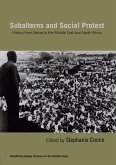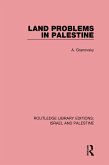Prisons have functioned as microcosms of the broader Israeli-Palestinian conflict for decades, with the Israeli state aiming to use mass incarceration for security, and Palestinian prisoners seeking to take back the prison space for organizing and resistance. Prisoners' actions included but were not limited to hunger strikes, as prisoners often relied more on everyday acts of noncompliance and developing an internal "counterorder" to challenge authorities. The volume demonstrates how the Palestinian prisoners movement was intertwined with the Palestinian national movement, strongest in the popular mobilization era of the 1970s and 1980s, and significantly weaker and more fragmented after the Oslo Accords of the 1990s and the second intifada.
Presenting a fresh analysis of a central, but often overlooked aspect of the Israeli-Palestinian conflict, the volume offers valuable reflections on prison-based resistance in protracted conflicts more broadly. It is a key resource to students and scholars interested in contemporary conversations on mass incarceration, criminal justice, Middle East politics and history.
Dieser Download kann aus rechtlichen Gründen nur mit Rechnungsadresse in A, B, BG, CY, CZ, D, DK, EW, E, FIN, F, GR, HR, H, IRL, I, LT, L, LR, M, NL, PL, P, R, S, SLO, SK ausgeliefert werden.
"In situating first-hand prisoner accounts alongside historical analysis, Norman affirms the crucial role the Palestinian Prisoner movement assume within the broad spectrum of Palestinian resistance. This detailed and engaging analysis is an important and timely contribution to the broader field of political resistance to incarceration." - Brendan Browne, Trinity College Dublin
"Julie Norman's outstanding study uses testimony from Palestinian political prisoners themselves to explore the "counterorder" they construct within Israeli prisons and how this is linked to the broader dynamics of the nationalist movement. It is at once both sensitive and insightful, with much to offer scholars of Palestinian politics, prison activism, and popular mobilization." - Rex Brynen, McGill University
"Using concepts from the literature on social movement and nonviolent resistance, Julie Norman, in superb narrative fashion, explores the relationship between the prisoners' movement and the Palestinian national movement. Tracing changes in the prisons-and the prisoners' efforts-over time, Norman captures the human agency of Palestinians caught in the crossfires of the broader Israeli-Palestinian conflict." - Maia Carter Hallward, Kennesaw State University
"In fascinating detail, Julie Norman explores the evolution of the Palestinian prisoner movement. Collective resistance, hunger-strikes, education, and mobilisation beyond the prisons all speak to the central role of the prisons in the Israeli-Palestinian conflict. This book is a must read for those who care about the Middle East and political imprisonment in general. An impressive achievement." - Kieran McEvoy, Queens University Belfast









